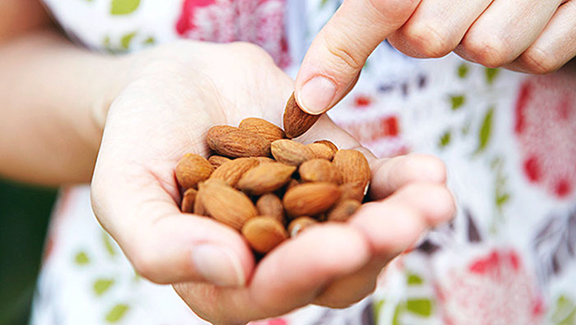Do We Really Need Sugar?
Like it or lump it, there are very few of us who get through the day without adding sugar to our diet. We are drawn to the taste of sweetness like bears to honey.
Refined sugar is toxic for the human body. It is responsible for obesity and diabetes, as well as many other health related disorders. It is eight times more addictive than cocaine and yet it’s one of the most consumed substances on earth.

Refined sugar is toxic for the human body. It is responsible for obesity and diabetes, as well as many other health related disorders. It is eight times more addictive than cocaine and yet it’s one of the most consumed substances on earth.
Since sugar contains no beneficial nutrients, it is not necessary to eat any at all, and yet the typical American continues to consume between one hundred and twenty to one hundred and fifty pounds each year.
The problem with refined sugar, the type you use in baking, add to your coffee or tea and find in sweets like candy, is its fast rate of metabolism, lack of healthy nutrients and inability to make you feel full. Sugar comes from sugar cane, yet extreme refinement has eliminated all of the fiber and plant nutrients. Refined sugar is quickly broken down into glucose and fructose. The increase in glucose spikes insulin and blood sugar levels, giving you a quick surge of energy. If you do not use this energy immediately, your body turns it into fat. Fructose is metabolized in your liver and is absorbed at once, increasing fat cell production and workload on your liver. The quick digestion of refined sugar prevents fullness even after you eat a calorie-rich dessert, leaving you hungry.
Are you addicted to sugar?
- Do you struggle to walk past a sugary treat without taking just one?
- Do you have routines around sugar consumption, for example, always having ice cream, or needing a piece of chocolate to relax in front of the television?
- Are there times when you feel as if you cannot go on without a hit of something sweet?
- If you go without sugar for 24 hours, do you develop headaches, fatigue and mood swings?
- If you answered YES to one of the questions above, you may be addicted.
- There is no doubt that sweets are tempting! The good news is you can learn to overcome your sugar cravings. Here are a few tips to help get you on your way.
Limit Desserts
The first and perhaps most obvious step in eliminating refined sugars is to skip dessert. Ice cream, cake, cookies, brownies and pastries are loaded with refined sugar and not much else in terms of nutrition. When that post-dinner sweet craving hits, reach for a piece of fruit. Fruit and refined sugar have very different effects in the body. Besides being rich in antioxidants, phytonutrients, vitamins and minerals, fruit contains natural sugars and are an excellent source of fiber. Fiber in fruit expands in your gut, making you feel full and prevents the sugars from being rapidly broken down and stored.
Identify Sugar Stressors
Most sugar cravings aren’t the result of actual physical hunger. More often than not they are motivated by emotions such as anger, stress, boredom and sadness. When we lose control, it is human nature to eat our emotions. When you can identify your sugar stressors you will gain a new found sense of self-control. This will help you fight future cravings.
Learn Healthier Coping Mechanisms
Now that you’ve got a handle on why you are eating an excessive amount of refined sugar, finding healthier coping mechanisms to handle your emotions will stop you from diving into that pint of ice cream when you’ve had a stressful day. Instead of eating, grab your gym bag and head to the gym, schedule a massage, take a walk with a friend, read a book or listen to your favorite music.
Out Of Sight Out Of Mind
If you can’t have a cookie without wanting to eat the whole bag, don’t buy them! Keeping tempting sweets in your home will make it too easy to binge at your weakest moments. If you’re having the urge to eat something sweet, have natural sugar alternatives handy. This will prevent you from consuming empty calories with no nutritional value. Stock up on fresh fruit, fresh veggies, dried fruit, nuts, and natural treats like real honey and maple syrup.

Swap sugary beverages for natural, no-added sugar beverages such as herbal teas, carbonated water or regular water. Add flavor and texture with a slice of fresh fruit, frozen berries, a lemon wedge or sliced cucumbers.
Swap Sugary Beverages
Sugary beverages such as soda, sweetened tea, lemonade, juice mixes and even fruit juice all contribute to our daily sugar intake. Swap them for natural, no-added sugar beverages such as herbal teas, carbonated water or regular water. Add flavor and texture with a slice of fresh fruit, frozen berries, a lemon wedge or sliced cucumbers.
Eat Balanced Meals
If you find yourself standing in front of the vending machine on your breaks, try eating three balanced meals. A healthy, balanced meal contains one part complex carbohydrates (fruits, vegetables, and whole grains), one healthy fat (vegetable oils, nuts, dairy, or fish high in omega-3 fats), and one lean protein (chicken, turkey, fish or lean beef). Keeping yourself satiated with healthy food will keep your insulin levels from spiking, which is what causes sugar and carb cravings.
Read Labels Closely

Stock up on fresh fruit, fresh veggies, dried fruit, nuts, and natural treats like real honey and maple syrup.
More than two-thirds of the refined sugar used in the United States is added to processed foods. While some labels will simply list sugar in the ingredient list, it is not always that straight forward. The terms sucrose, glucose, fructose, maltose dextrose, lactose, high fructose corn syrup, molasses, honey, evaporated cane juice, fruit juice concentrates, cane crystals and corn sweetener all indicate the presence of refined sugars. Avoid buying foods that have any of these terms near the beginning of the ingredient list or several of the terms contained throughout the list. Some not-so-obvious sources of refined sugar include peanut butter, pasta sauce, soups, salad dressings and ketchup.Bake and Cook Smarter
Many recipes both sweet and savory call for sugar. Often, you can reduce or eliminate sugar all together without sacrificing taste. You can find healthy versions of your favorite recipes all day long on the internet.
In Conclusion:
Reducing our consumption of refined sugar can improve our quality of life. Once we stop consuming it, our bodies begin to heal. Studies have shown that in just twenty five days, our metabolism has a faster response; we lose weight and have more energy.
So what are you waiting for? Start cutting back on refined sugars in your diet today! Like anything else it will take a little work, but hard work always pays off. Good luck to you!
I have been a personal trainer for over seventeen years and I absolutely love what I do. I honestly feel that I have one of the best jobs out there! The most rewarding part of my profession is helping one of my clients succeed at reaching their personal fitness goals. Making a difference in someone’s life makes it all worthwhile. I am currently certified by the National Sports Conditioning Association, Apex Fitness Group, and the International Sports Science Association.











